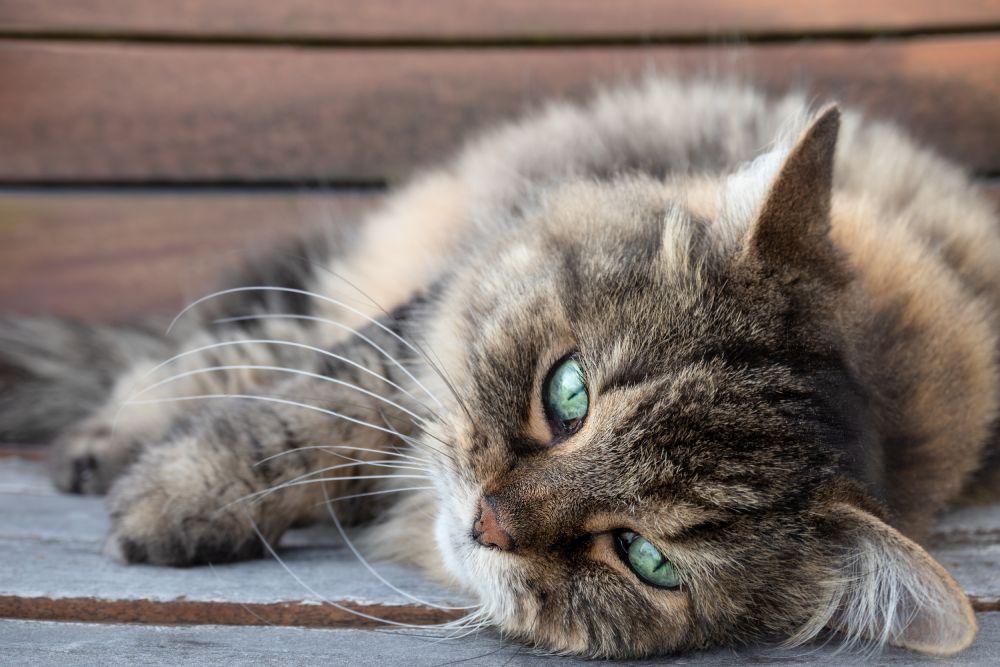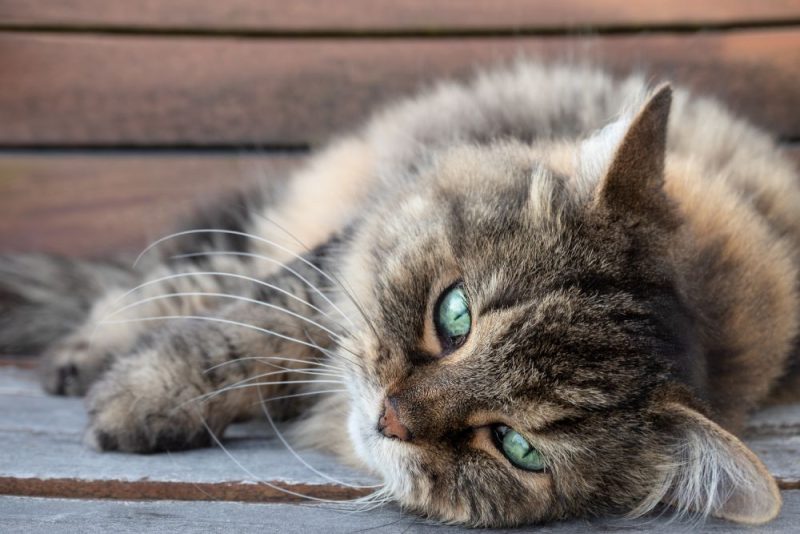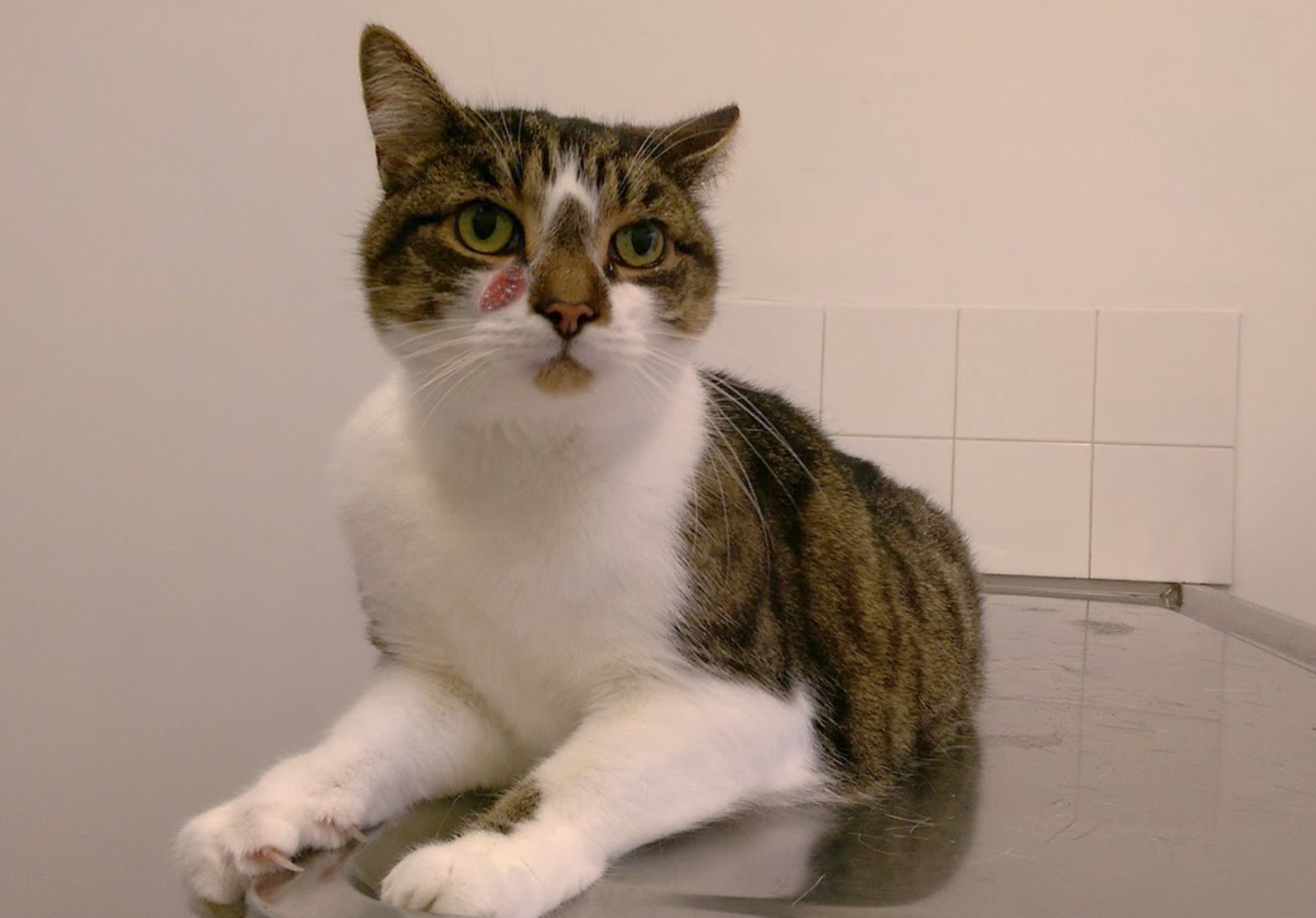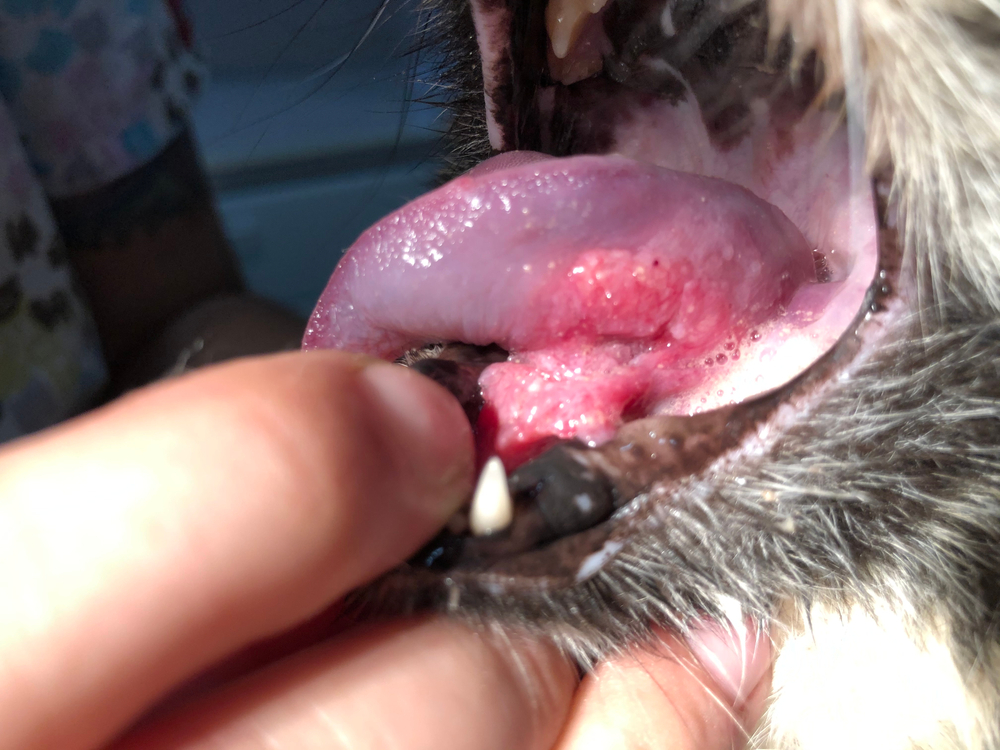You’ve seen your cat through all their life stages, from their energetic kittenhood to the calmer adult years. You may start to notice changes in your cat as they age, some of which are normal with maturation. However, we must be vigilant to recognize signs of illness in our older companions.
Below are eight of the most common diseases impacting senior cats. Continue reading to learn more about these conditions and what can be done to support our feline companions.
The 8 Common Health Issues in Senior Cats
1. Hyperthyroidism
One endocrine disorder that senior and geriatric cats are prone to developing is hyperthyroidism. This is generally caused by a benign tumor on the thyroid gland, which stimulates excess secretion of thyroid hormone.
Hyperthyroidism causes an increase in appetite and agitation, as well as weight loss and often vomiting. Hyperthyroidism is diagnosed based on clinical signs, physical examination findings, and elevated thyroid levels on bloodwork. Fortunately, there are different ways in which patients diagnosed with hyperthyroidism can be treated.
Depending on the patient, radioactive iodine may be utilized, which could potentially cure hyperthyroidism by destroying abnormal thyroid tissue. Daily medication like methimazole and an iodine-restricted diet (called Y/D) can help restrict thyroid levels. Surgical removal of the thyroid gland is possible, but this is rarely pursued, as other alternatives yield similar results.
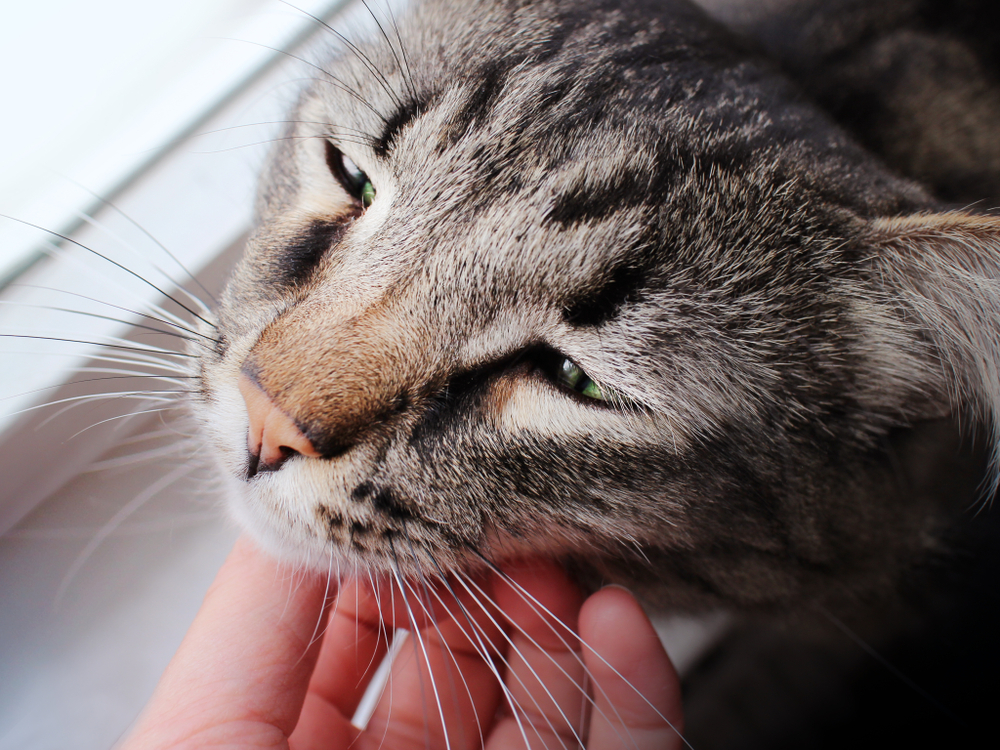
2. Chronic Renal Disease
A common disease impacting older cats is chronic kidney disease (CKD) or chronic renal (CRD) failure. Cats suffering from CKD will experience a decline in kidney function, which leads to weight loss, excessive water intake and urination, and poor appetite. CKD patients often appear lethargic and unkempt.
Chronic kidney disease causes poor regulation of fluids within the body. Cats with CKD are in a constant state of dehydration because of poor fluid regulation, so supplementing fluids is necessary. Subcutaneous fluid administration and a canned diet can help improve a CKD cat’s hydration. Prescription diets with lower levels of phosphorus and restricted protein levels are beneficial to CKD patients as well.
Chronic kidney disease is most often diagnosed through evaluation of bloodwork and urine. Unfortunately, CKD is progressive, and a cure doesn’t exist. Overall prognosis is varied and is dependent on how severe the kidney disease is at the time of diagnosis and the patient’s response to supportive interventions.
3. Obesity
Obesity is correlated to overfeeding and lack of physical exercise. It is no secret that cats can be sedentary creatures, which can be amplified with secondary conditions like arthritis. It is important to work on improving body conditions in overweight cats with the help of your veterinarian.

If you need to speak with a vet but can’t get to one, head over to PangoVet. It’s an online service where you can talk to a vet online and get the personalized advice you need for your pet — all at an affordable price!
It is critical that an overweight cat not lose weight abruptly either, though, as this could create more problems. Weight loss diets and interactive food toys can be utilized to help encourage weight loss.
4. Dental Disease
Stoic by nature, feline companions do not often allow their weaknesses to be known. Unfortunately, cats can suffer quietly from severe dental disease. Examples of dental disease can include gingivitis, feline oral resorptive lesions, and tooth fractures. It is important to have your cat’s oral cavity examined regularly by your veterinarian, as dental procedures to address problematic teeth may be necessary.
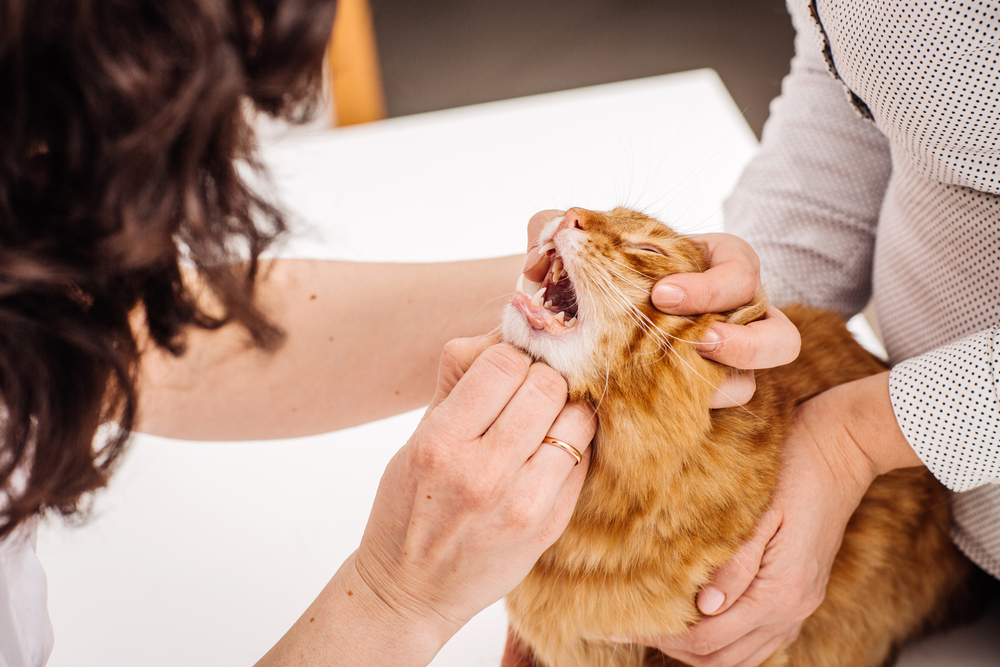
5. Arthritis
It is estimated that between 70–90% of cats over the age of 12 have arthritis. The sedentary lifestyle of cats may not illustrate arthritis discomfort as plainly as it is in dogs. Arthritis is a degenerative disorder that causes bone-on-bone friction because of cartilage breakdown. Thankfully, cats can experience improvement in arthritis discomfort through joint supplements, NSAIDS, and monoclonal antibodies. Additionally, ensuring a healthy weight is imperative.
6. Cancer
As our bodies age, we become more prone to cancer. Unfortunately, our feline companions are no different. There are several different types of cancer our cats can succumb to, with lymphoma being one of the most common.
Closely monitor your cat for signs of weight loss and lethargy, as these could be signs of cancer. Additionally, have any new growth evaluated by your veterinarian. Some cancers can be cured by simple surgical removal, whereas others may respond favorably to chemotherapeutic treatments. Your veterinarian will be helpful in guiding you through treatment options.
7. Diabetes Mellitus
Another endocrine disorder commonly found in senior patients is diabetes mellitus. Diabetes mellitus is the result of obesity and insufficient amounts of insulin. Cats are diagnosed as diabetic when higher than normal glucose is found on lab work. Affected cats will have recently experienced weight loss and an increase in water intake and urination, and they may exhibit neurologic signs.
Fortunately, diabetes mellitus is manageable through glucose regulation. This is most often done through dietary alterations and insulin administration. New oral products are now available to help eliminate glucose from the bloodstream called Bexacat and Senvelgo. Some patients diagnosed with diabetes mellitus may even experience remission. However, it’s best to ask your vet about this.
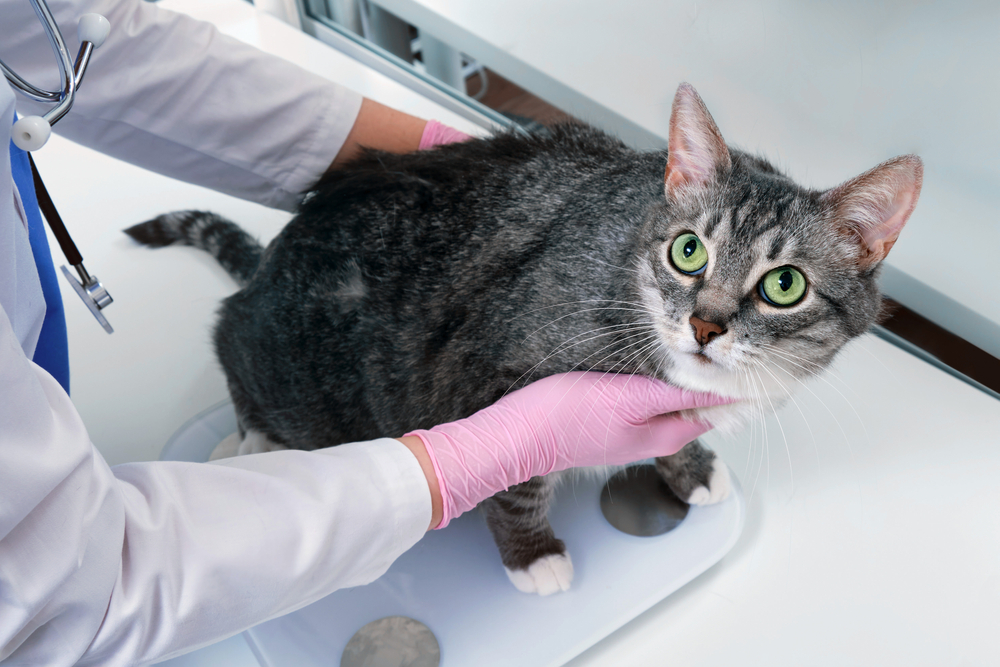
8. Heart Disease
Although heart disease can impact young cats as well, heart disease is commonly diagnosed in adult and senior cats. Common types of heart disease include hypertrophic cardiomyopathy and valve degeneration.
Cats with heart disease may not experience any appreciable clinical signs until they go into heart failure. Cats in heart failure experience an increase in respiratory rate and have labored breathing. Radiographs, echocardiograms, and other diagnostics may be necessary to diagnose heart disease.

Veterinary Care
As your companion ages, the care that they require may change. It is recommended that your cat have regular veterinary appointments every 6 months instead of once per year. The frequency of veterinary visits may increase more if an underlying condition is diagnosed.
Your veterinarian will perform a thorough physical examination and ask specific questions regarding your pet. Annual lab work, including urinalysis and bloodwork, will be recommended, as this is often the first way of identifying several different disease processes, including diabetes mellitus, hyperthyroidism, and chronic kidney disease. Many diseases can be more successfully managed if they are identified early, prior to the onset of dramatic clinical signs.
Depending on your veterinarian’s findings and diagnosis, care recommendations will be made. It will be important to maintain close communication with your veterinarian and alert them to any changes in your companion’s condition.
In Summary
Our senior cats may require more care as they mature. Ensure that your senior cat has an established relationship with a primary care veterinarian, and if possible, plan on having your pet evaluated every 6 months once they have reached senior status. It is critical to know which illnesses are more likely to plague our seniors, as quick recognition of subtle signs can be beneficial.
Featured Image Credit: sophiecat, Shutterstock

